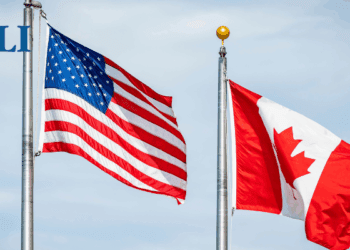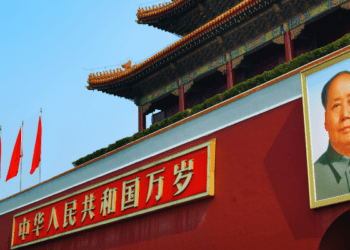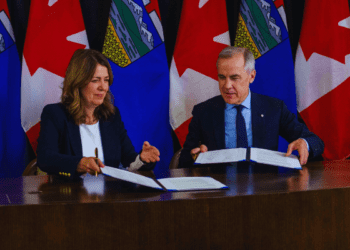Calls by some politicians and interest groups to remove a reference to “Sikh (Khalistani) Extremism” from a government national security report would place politics and pandering ahead of the security of Canadians.
By Ujjal Dosanjh, December 28, 2018
The recently released Public Report on the Terrorist Threat to Canada lists the following threats: Sunni Islamist Extremism, Right Wing Extremism, Sikh (Khalistani) Extremism, Shia Extremism and Canadian Extremist Travellers. Unfortunately, the report’s inclusion of the indisputable fact that “some individuals in Canada continue to support Sikh (Khalistani) extremist ideologies and movements,” engendered an immediate outcry from the usual quarters.
It threw some of the Sikh and other MPs including some ministers in Prime Minister Trudeau’s cabinet into a tizzy. Some organisations meeting in Toronto issued hyper ultimatums to the government to meet with them by a certain deadline, and rescind what they considered to be the offending portions of the innocuous report, or else.
Or else what? No one knows. Much of the debate on the report has been in Punjabi, in the Punjabi media, allowing many participants to run with the hare while hunting with the hounds, further exacerbating the ghettoizing effects of the rabid identity politics at play. Canadians need to understand what’s going on here.
Right at the outset of a heated meeting with Sikh and a few other Liberal MPs, according to my sources, Public Safety Minister Ralph Goodale had suggested removing the offending word “Sikh” but appropriately refused to remove from the report the reference to Khalistani extremism. The MPs and ministers present argued vehemently for the deletion of all and any reference to Khalistani extremism. Goodale didn’t budge.
Unsatisfied, some MPs as well as a cabinet minister or two were out in the Punjabi media pandering to the Khalistanis and their sympathizers. They publicly proclaimed regret for their “mistake” in allowing the reference to “Sikh (Khalistani) extremism” in the report. They have been publicly lobbying Goodale to do what he had refused to do in the private meeting. Goodale has promised to review how threats are described in such reports.
Not to be left behind, the Conservative opposition MP Garnett Genuis, too, took to the radio casting aside all understanding of the process by which security and intelligence reports are compiled or the importance of not politicising the work of our intelligence professionals, and joined the Liberal MPs in their ongoing unseemly pandering.
This pitiable public grovelling by politicians has left the impression that they, not the intelligence and security professionals, have the final say in the formulation of national security and intelligence reports. It seems that a US-style Trumpian delusion about the powers of politicians has entered some Canadian politicians’ cranial cavities.
To make matters worse, some politicians and groups want the government to prove the reference in the Report to “Khalistani extremism” is rooted in evidence. But it would be foolish to publicly share the classified evidence that forms the basis of the report. On the question of public safety, it is the obligation of the government to ensure the conclusions it shares publicly are based on robust evidence and intelligence.
Minister Goodale informed the aforementioned meeting of the MPs and ministers that the report’s conclusions are substantially and amply supported by the evidence. He should have added, if he didn’t, that Canada isn’t some banana republic where any pressure group, no matter how vocal, could or should be allowed to undermine its national security by forcing a public disclosure of classified and sensitive intelligence.
The unusually vociferous Khalistani elements in Canada — unfortunately a few of them occupying seats in our Parliament — have never understood nor honestly accepted the tragic truth of the Khalistani violence and terror that has been perpetrated on and from Canadian soil. The portraits of the Air India terrorist Talwinder Parmar and many others are still revered inside many temples in Canada and on the outside walls of at least one — in Surrey. The perpetrators of Khalistani terror continue to be glorified in public parades. From that and much else, it is quite evident that far from being extinct, Khalistani extremism is well and alive in Canada.
The most foolish defence of such extremism offered by some self-confessed Khalistanis is that they mean no harm to Canada; it is only India that is the focus of their hatred; if they harbour or support violence, it is only for India — as if one could live a schizophrenic philosophical or political existence, one half violent, the other half non-violent.
In any event, there was absolutely no need to raise the issue in the first place because the report’s language is very careful. “Sunni Islamist extremism” clearly refers only to the Islamist extremists amongst the Sunnis, not to all Sunnis; otherwise there was no need for the word “Islamist” in it. The reference to “Sikh (khalistani) extremism” is deliberately designed to point to the Khalistani extremists amongst the Sikhs, not to all Sikhs.
The bald and inescapable truth is Canada can’t and mustn’t allow any extremist movements on its soil aimed at itself or at any foreign countries. Canada’s national security is beyond compromise, be it under the guise of bruised religious sensibilities, heightened identity politics or cowardly pandering by politicians.
Ujjal Dosanjh is a former federal cabinet minister and former premier of British Columbia.




